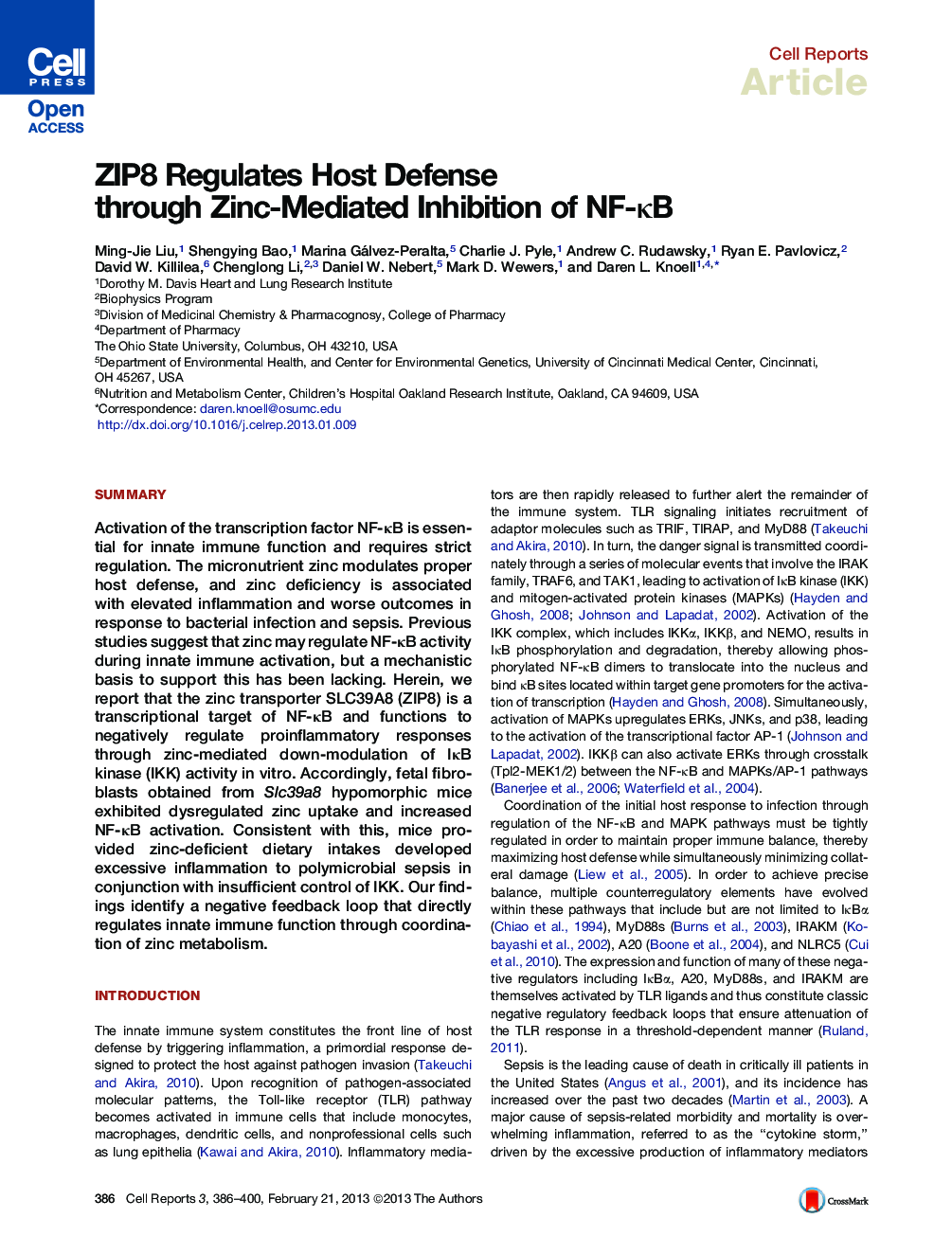| Article ID | Journal | Published Year | Pages | File Type |
|---|---|---|---|---|
| 2042181 | Cell Reports | 2013 | 15 Pages |
SummaryActivation of the transcription factor NF-κB is essential for innate immune function and requires strict regulation. The micronutrient zinc modulates proper host defense, and zinc deficiency is associated with elevated inflammation and worse outcomes in response to bacterial infection and sepsis. Previous studies suggest that zinc may regulate NF-κB activity during innate immune activation, but a mechanistic basis to support this has been lacking. Herein, we report that the zinc transporter SLC39A8 (ZIP8) is a transcriptional target of NF-κB and functions to negatively regulate proinflammatory responses through zinc-mediated down-modulation of IκB kinase (IKK) activity in vitro. Accordingly, fetal fibroblasts obtained from Slc39a8 hypomorphic mice exhibited dysregulated zinc uptake and increased NF-κB activation. Consistent with this, mice provided zinc-deficient dietary intakes developed excessive inflammation to polymicrobial sepsis in conjunction with insufficient control of IKK. Our findings identify a negative feedback loop that directly regulates innate immune function through coordination of zinc metabolism.
Graphical AbstractFigure optionsDownload full-size imageDownload as PowerPoint slideHighlights► NF-κB regulates expression of the zinc transporter SLC39A8 (ZIP8) ► ZIP8 negatively regulates NF-κB through zinc-mediated down-modulation of IKK activity ► Zinc inhibits IKKβ upon binding to a specific site located in the kinase domain ► Fetal fibroblasts from Slc39a8 mutant mice cannot control NF-κB activation
